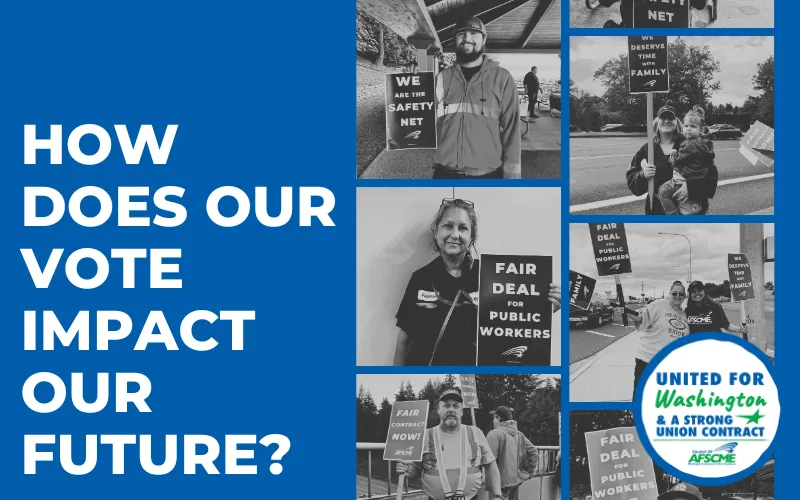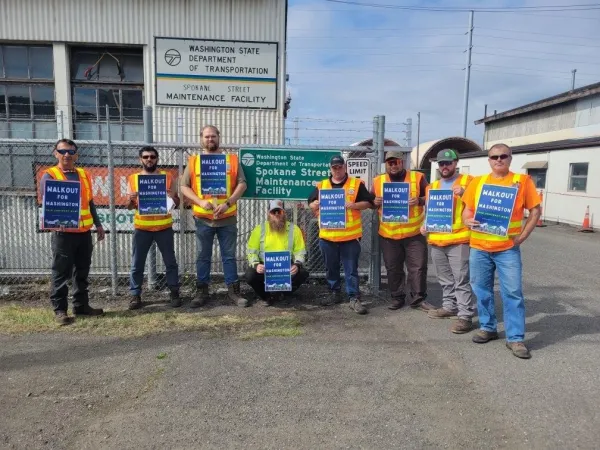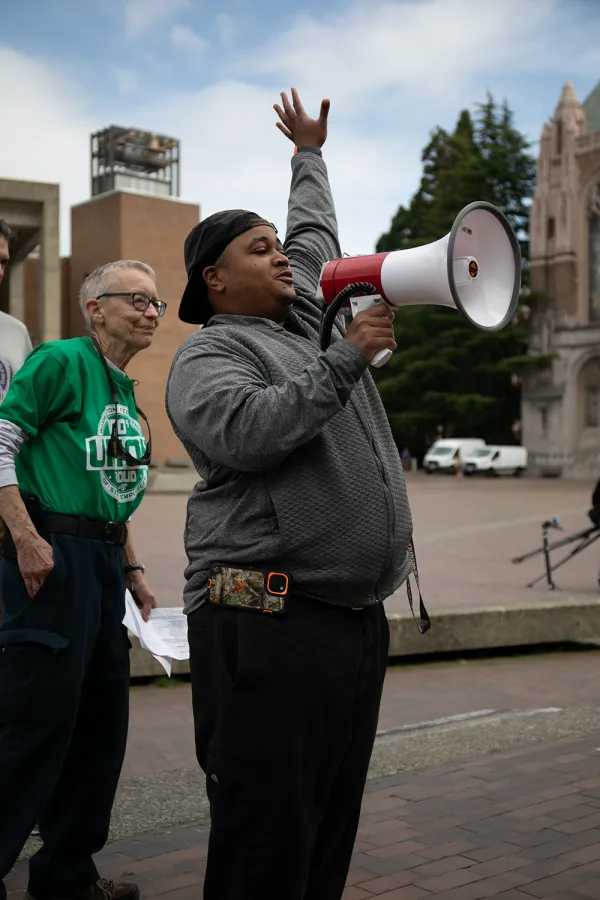How Does Our Contract Vote Impact Our Future?

Jump to contents:
What is next if members vote YES?
What is next if members vote NO?
How can I get questions answered?

Many members have submitted questions about what happens after you vote on your tentative agreement, and what the different outcomes are depending on how you vote. We are glad you asked, because there is a lot of misinformation out there that can create harmful outcomes for members of our union!
All of the collective bargaining agreements (CBA) currently being voted on are subject to RCW 41.80, which includes important requirements about the process and timeline of our negotiations. The information below is what would happen in accordance with state law, depending on the vote.
What is next if members vote YES?

If members vote yes, then the tentative agreement is ratified. This must be completed in September and communicated to the Office of Financial Management (OFM) prior to October 1, 2024, to meet the legally required deadline for any funding. Once that is complete, OFM determines “financial feasibility,” which is also a legally required step. From there, our tentative agreement makes its way to the Governor for inclusion in their proposed budget.
During the 2025 legislative session, our state’s legislators will determine whether our contracts are funded as a part of finalizing the state’s overall budget for the 2025-2027 biennium. Given the incredibly challenging budget outlook, members should be prepared to work hard during the legislative session lobbying legislators for the funding of our CBAs. Learn more here about how to get involved in that process.
What is next if members vote NO?
If members vote no, the tentative agreement is not ratified and there are several important ramifications to be aware of. First, the October 1 deadline is not flexible. It is set in law and a no vote would mean we do not meet the deadline. Failing to meet the deadline means there is no funding at all for at least the first year of what would be the 2025-2027 CBA period.
In addition to there being no funding at all, and no improvements to wages or working conditions, only the parts of our current contract that are in effect as of June 30, 2025, would carry forward for up to one year. That means that we would have numerous takeaways starting July 1, 2025. A major example of this in General Government would be a pay cut for all bargaining unit members in DSHS 24/7s, because the MOU that pays 5% for that work would have expired.
How can I get questions answered?

Need more information? Check out the ratification page for your contract to learn about what is at stake, visit a voting assistance center, or contact the Member Connection Center (MCC) at [email protected] or 833-MCC-WFSE (1-833-622-9373).
